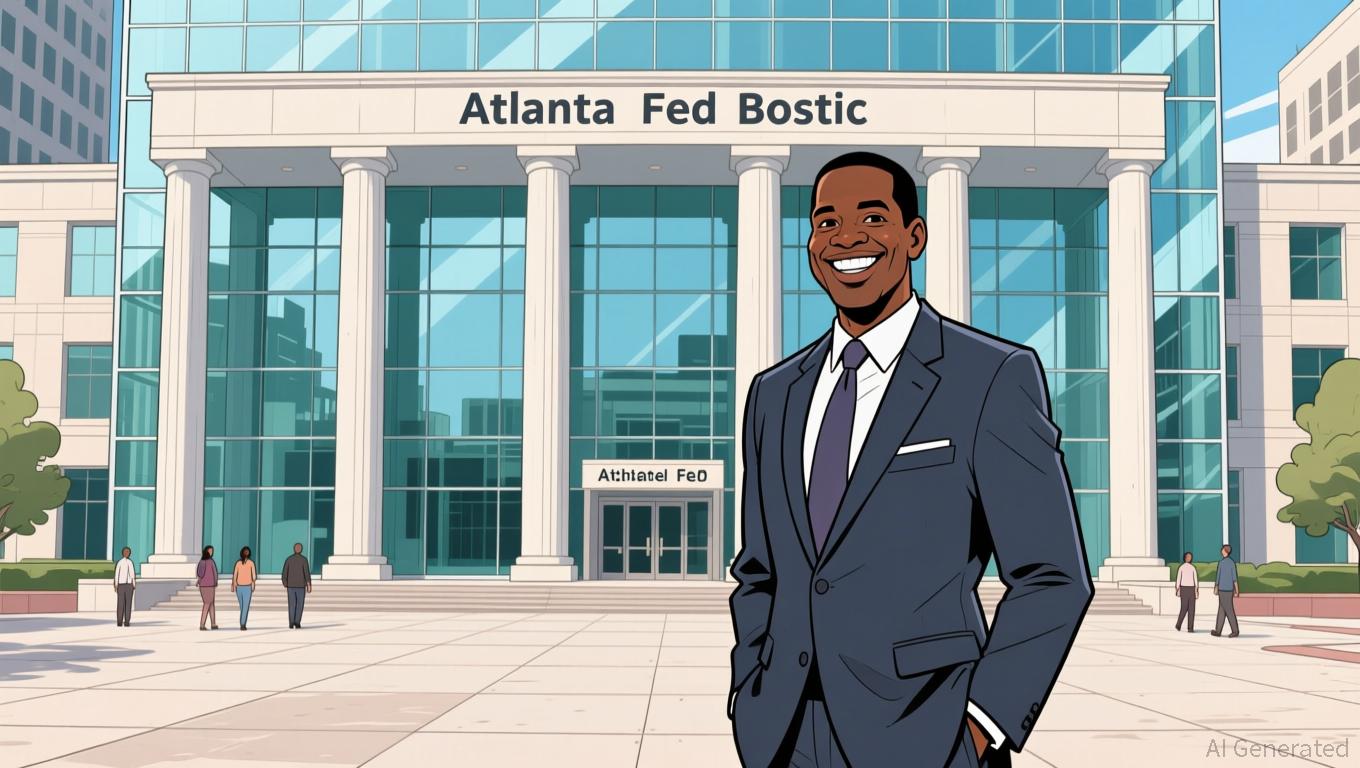Political Influence Challenges Fed's Autonomy Amid Bostic's Departure
- Fed President Raphael Bostic announced his retirement in 2025, leaving a key hawkish voice on inflation control in the FOMC. - His departure follows ethical scrutiny over 154 trades during blackout periods and Trump's push to reshape Fed leadership. - A Trump-aligned successor could shift monetary policy toward looser rates, impacting housing, tech, and import-dependent sectors. - Bostic's exit highlights political pressures on Fed independence as Trump campaigns to replace officials amid post-pandemic e
Federal Reserve President Raphael Bostic, known for his hawkish stance on the central bank’s policy committee, has announced he will retire on November 12, 2025, with his departure taking effect February 28, 2026. This announcement has sparked debate about the Fed’s policy outlook as political scrutiny intensifies, according to a
Bostic’s decision to step down follows years of scrutiny regarding his personal financial activities. In 2024, the Fed’s inspector general determined he breached internal guidelines by making 154 trades during blackout windows before policy meetings, raising concerns about potential use of privileged information, according to a

Throughout his time as Atlanta Fed president, Bostic was recognized for his firm approach to inflation. Addressing the Atlanta Economics Club, he stressed that inflation remains the “most pressing and evident threat,” outweighing unclear signals from the labor market, according to an
The process to name Bostic’s successor will be closely monitored, especially in light of Trump’s intentions to reshape the Fed’s Board of Governors and his role in the selection of regional bank leaders, as outlined in the
Fed Chair Jerome Powell commended Bostic’s work, describing his input as “a reliable perspective” that “deepened the FOMC’s insight into our evolving economy,” as referenced in the
Disclaimer: The content of this article solely reflects the author's opinion and does not represent the platform in any capacity. This article is not intended to serve as a reference for making investment decisions.
You may also like
Bitcoin Updates: Crypto Fear Index at 15—Is This Surrender or a Chance to Invest?
- Crypto Fear & Greed Index hit 15, a seven-month low, signaling extreme investor pessimism amid macroeconomic and regulatory pressures. - Historical data suggests such fear phases often precede market recoveries, with Bitcoin near 2022 rebound levels and Ethereum whale buying surging. - Bitcoin ETFs saw $523M inflows as institutional demand returns, contrasting Ethereum's outflows and Brazil/Japan's new regulatory crackdowns. - Analysts urge long-term investors to view the dip as an opportunity, while sho

Bitcoin Updates: Japan Strives to Foster Crypto Advancements While Ensuring Investor Protection Amid DATs Decline
- Japan Exchange Group (JPX) plans stricter rules for digital-asset treasury (DAT) firms amid volatile stock collapses, including enhanced audits and backdoor listing restrictions. - Metaplanet and Convano, major DATs holding thousands of BTC, have lost over 60% of their value, reflecting global market instability linked to crypto-heavy strategies. - Regulators warn DATs pose risks to retail investors due to reliance on volatile assets, while Japan balances innovation incentives with governance safeguards

Ethereum News Update: Ethereum’s Unwavering Commitment to Decentralization Stands Strong Against Centralization Forces
- Vitalik Buterin and Ethereum Foundation researchers released the "Trustless Manifesto," advocating for decentralization and trustlessness as foundational blockchain principles. - The manifesto outlines three core laws: No Key Secrets, No Irreplaceable Intermediaries, and No Unverifiable Outputs to prevent permissionless access erosion. - Stored as an immutable on-chain smart contract, the document allows users to publicly pledge support, reinforcing Ethereum's commitment to trust neutrality. - Amid risin
Bitcoin Updates: Japan Strengthens Cryptocurrency Regulations to Protect Investors Following Market Downturns
- Japan's regulators tighten rules for Bitcoin-holding firms, targeting audit standards and backdoor listing loopholes. - Companies like Metaplanet and Convano face sharp share declines amid crypto market volatility and governance scrutiny. - JPX aims to close regulatory gaps by restricting shell acquisitions and enforcing transparency for crypto-focused restructurings. - FSA proposes mandatory registration for crypto custody services after a $312M hack, enhancing security oversight. - Stricter compliance
